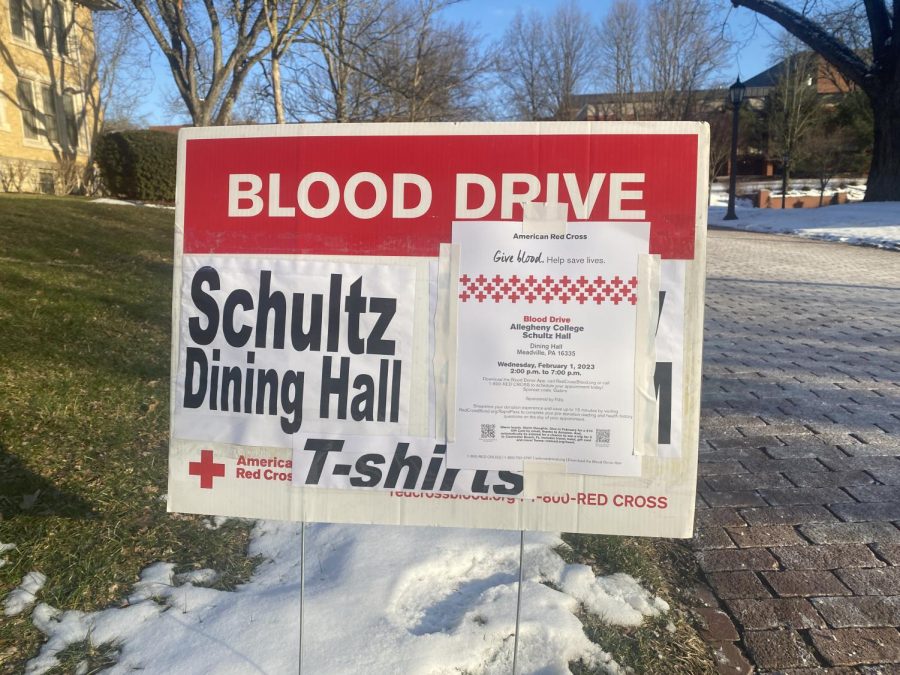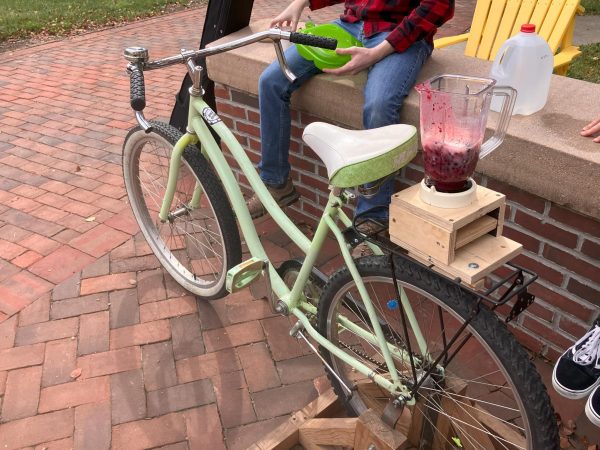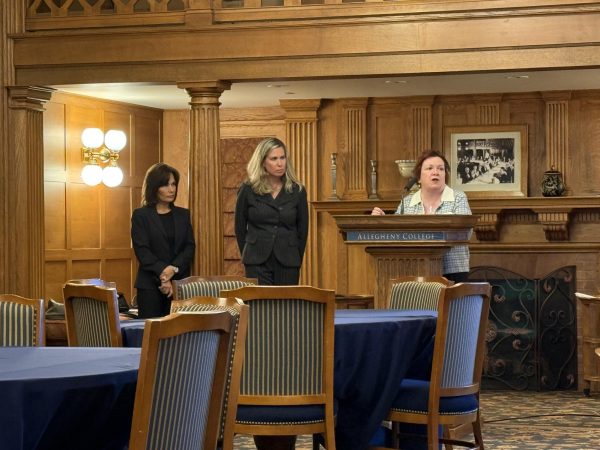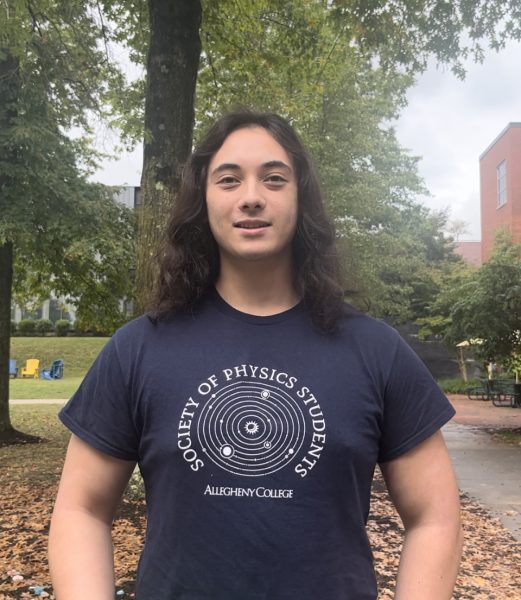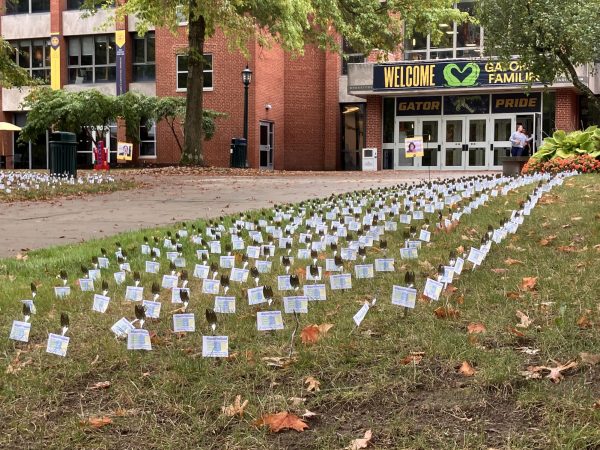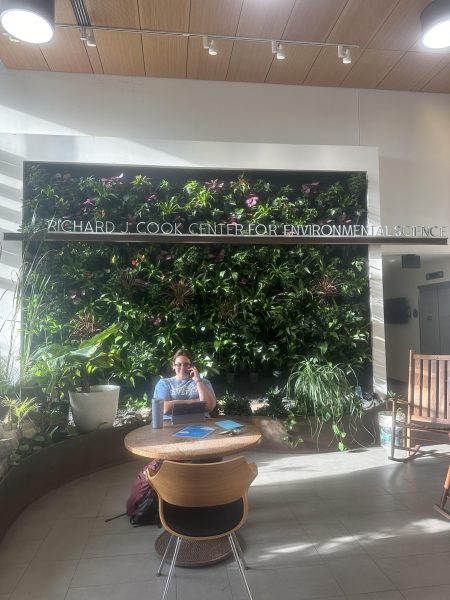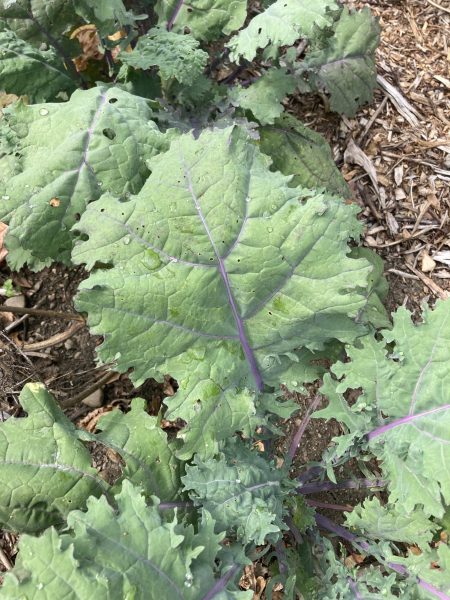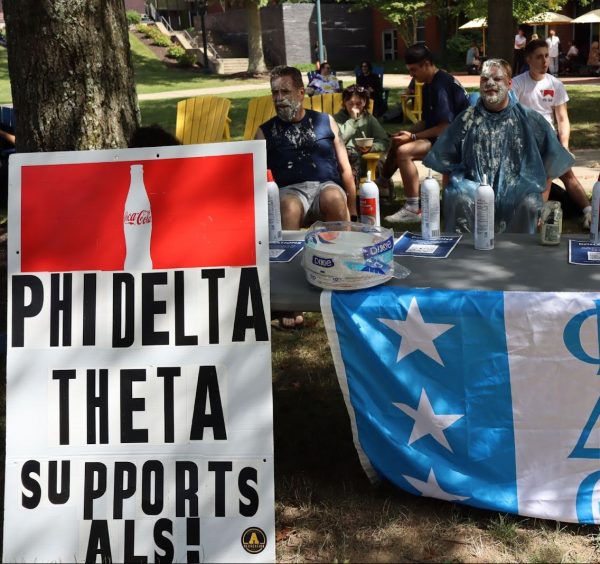Roll up a sleeve, save a life
Phi Gamma Delta organizes blood drive
Signs bearing witty phrases like, “You’re someone’s type. Give blood today!” were scattered on the college’s snowy lawns in the days leading up to a blood drive run by the Allegheny chapter of Phi Gamma Delta on Wednesday, Feb. 1.
The drive ran from 2-7 p.m. in Schultz Banquet Hall with the goal of drawing 30 donors who would each give a pint of blood.
“I know (donating blood) can be scary at times,” said FIJI Social Chair Tyler Miller, ’24. “But overall, from the feedback we’ve heard from the people donating blood, it makes them feel better that they’re helping somebody in need. So when you feel like you’re just helping out a community, it just makes you feel like a better person.”
In partnership with the American Red Cross Association, FIJI hosts two blood drives on campus each semester that are open to students, faculty and Meadville residents. FIJI Chair of Graduate Relations Tharit Monsereenusorn, ’24, has volunteered at multiple FIJI blood drives.
“People get in accidents all the time and I think that it’s such a small price that you pay,” said Monsereenusorn.
“You essentially get blood taken and you feel kind of sick for thirty minutes, for maybe like a day. But the fact that you’re able to save someone’s life with that blood that you gave, I think that means so much.”
FIJI Chair of Philanthropy Jaden Debevec, ’25, said that he has noticed more and more students attending recent blood drives.
“There are a lot of students that are excited about supporting this cause and we have seen an uptick of new faces,” Debevec said.
Before rolling up their sleeves at the drive, donors were vetted by nurses to identify any potential limiting factors that would prevent them from being able to donate blood. The list detailing donor eligibility is designed by the American Red Cross to protect the patients receiving blood and includes a wide range of limitations, from donors’ foreign travel to their current medications and health status. During the vetting process, nurses also took donors’ vitals, like blood pressure and iron levels.
Once they were deemed eligible to donate, the donors were led to a screened-off area to lay on beds for the duration of their blood draw. After, they were directed to a table bearing sugary drinks and snacks. Miller said that while it is not uncommon for donors to feel tired or thirsty after giving blood, hydrating and eating sufficiently ahead of time will lessen additional adverse side effects.
Monsereenusorn said he often hears students say they do not want to donate blood because they are scared of needles.
“It’s not as scary as people think,” Monsereenusorn said. “I understand there are a lot of restrictions with it. I respect that and, you know, it does take time to recover. But like I said earlier, you’re giving so little for so much. So I encourage anyone who is on the fence about donating or are just scared of needles — I understand that. I’m scared of needles too. But I just want them to understand that the next life you save could be your mom’s or your sister’s or your dad’s.”
Haley Ornt, ’24, has given blood twice prior to FIJI’s blood drive and was driven by similar motivations as Monsereenusorn to continue her donations.
“I just feel like if you have the ability to give, then you have sort of a responsibility or an obligation to because not everyone can,” Ornt said. “If you need it someday too, then you’d only be taking if you never gave anything.”
In January 2022, the American Red Cross declared its first-ever national blood crisis due to a severe blood shortage resulting from complications of the COVID-19 pandemic, according to the American Red Cross Website. The national blood shortage has posed challenges for medical centers, since someone needs blood or platelets in the U.S. every two seconds, according to the American Red Cross.
American Red Cross Account Manager Kim Michael has worked with FIJI for seven years to help organize their blood drives. She said the COVID-19 pandemic led to a decrease in blood donations from young people and that she hopes the trend will reverse itself in order to fulfill the nationwide demand for blood.
Each pint of blood a donor gives to the American Red Cross is separated into platelets, plasma and whole blood, which means that each donor has the opportunity to save three lives, according to Michael. Michael said that the blood donated at FIJI’s blood drive will go wherever it is needed most in the U.S. and that donors are often able to see where their blood goes and what category of patient it is used for. This follow-up for donors has been a major incentive for Harley O’Brochta, ’23, to continue his regular commitment to donating blood. For Michael, the system is invaluable and illustrates to donors just how significant their blood donations are.
“I had somebody from Meadville one time, their blood went to Parkland Hospital down in Florida when they had that shooting,” Michael said, in reference to the mass shooting that took place at Marjory Stoneman Douglas High School in 2018. “If you start donating at a young age, you can be so impactful in people’s lives.”
FIJI’s next blood drive will take place on Wednesday, April 19.
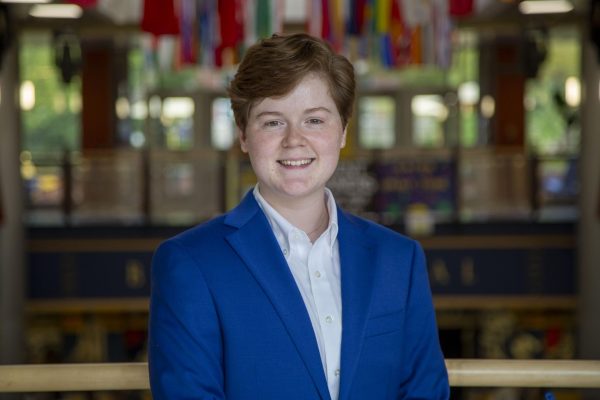
Anna Westbrook is a junior from the Washington, D.C. area. They are majoring in Environmental Science and Sustainability with a concentration in law &...



